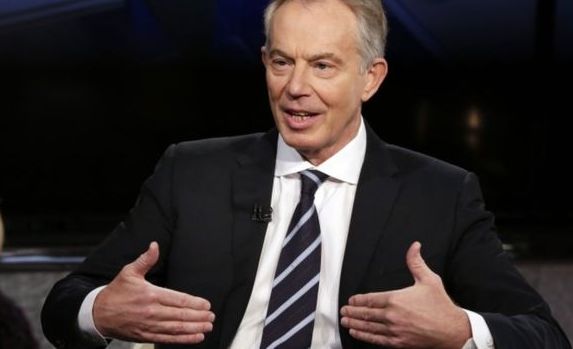The Chilcot Report and military intervention
- By Sumantra Maitra
 0 Comment(s)
0 Comment(s) Print
Print E-mail China.org.cn, July 9, 2016
E-mail China.org.cn, July 9, 2016
|
|
|
Tony Blair has insisted that military action was justified |
When the Iraq intervention started, I was 21 and an undergrad university student. I had an economics test the next day, but I was glued in front of the TV, waiting for the war to begin. It was by no means the first live televised 24/7 war, but it still had glamour. This was more visceral than the previous televised wars, this was shock and awe, a near constant bombing of Baghdad and sirens from fire brigades and ambulances. The civilizational center point of Mesopotamia, a city with a history of over three thousand years, was being systematically destroyed by death from above. It felt wrong, then, and it is known to be wrong now.
The recent Chilcot report on the British role in the Iraq war comes at a troubled time for the United Kingdom. It is the largest peacetime enquiry of the military in Britain, and it gives a damning verdict. It comes at a time when public distrust in institutions is at an all-time high. No one believes the media, no one even believes the experts; nothing is considered fact in this post-positivist, constructionist world, and the gate keepers of Western democratic liberal societies are fighting hard to get back their lost credibility. I won't go into the details of the report, as it is all over the media, but essentially it tells us that then British PM Tony Blair gave full support to U.S. President George Bush. The cost in this case was massive, but that's another matter.
Iraq still haunts our psyche because we still don't know why it really happened. It was never touted as a humanitarian intervention; the primary cause given was that Iraq was somehow linked to Al Qaeda, and Saddam has a huge WMD stash, which might be imminently used. Humanitarian intervention and Saddam being a brutal dictator were used as retroactive excuses when the war was already failing during the summer of 2006. Who decided on this nation building? Did no one realize that in a country ravaged by dictatorship and filled with sectarianism one cannot just import a foreign ideology? No one considered what would happen if the regional power balance fell or how many people would be killed in the resulting power vacuum? These are basic concepts from International Relations 101, and yet it seemed that no one was aware of them.
To be fair to Blair, I still think he did a lot for U.K. with regard to minimum wages, and gay rights, and he did actually raise some of the above-mentioned issues with Bush. But the U.S. would have gone into Iraq regardless. It has often been said that Blair and Bush tricked the United States and United Kingdom into to going to war. But the report stated that they genuinely thought, according to the available evidence intelligence, that there were WMDs in Iraq. It was a mistake, a terrible mistake, but it was not deception.
Unfortunately I don't think the lessons of this report will be studied and internalized. We see in foreign policy the same liberal loop: the belief that the same form of government suits every state, every country, every region, every culture, every demographic set, every mindset. The same liberal democratic model, which is undoubtedly good for some parts of the globe, doesn't cater to every unique region. There is no qualitative difference between the Iraq war and the intervention in Libya, which destabilized an entire North African coastline, devastated a relatively stable region, made the entire region a launching pad for the widespread migrant movement to Europe - not just from war torn regions, but from as far southern Africa - which has destabilized the social cohesion of Europe and qualitatively brought the EU down.
Unfortunately, interventionists never learn.
Sumantra Maitra is a columnist with China.org.cn. For more information please visit:
http://www.china.org.cn/opinion/SumantraMaitra.htm
Opinion articles reflect the views of their authors only, not necessarily those of China.org.cn.







Go to Forum >>0 Comment(s)